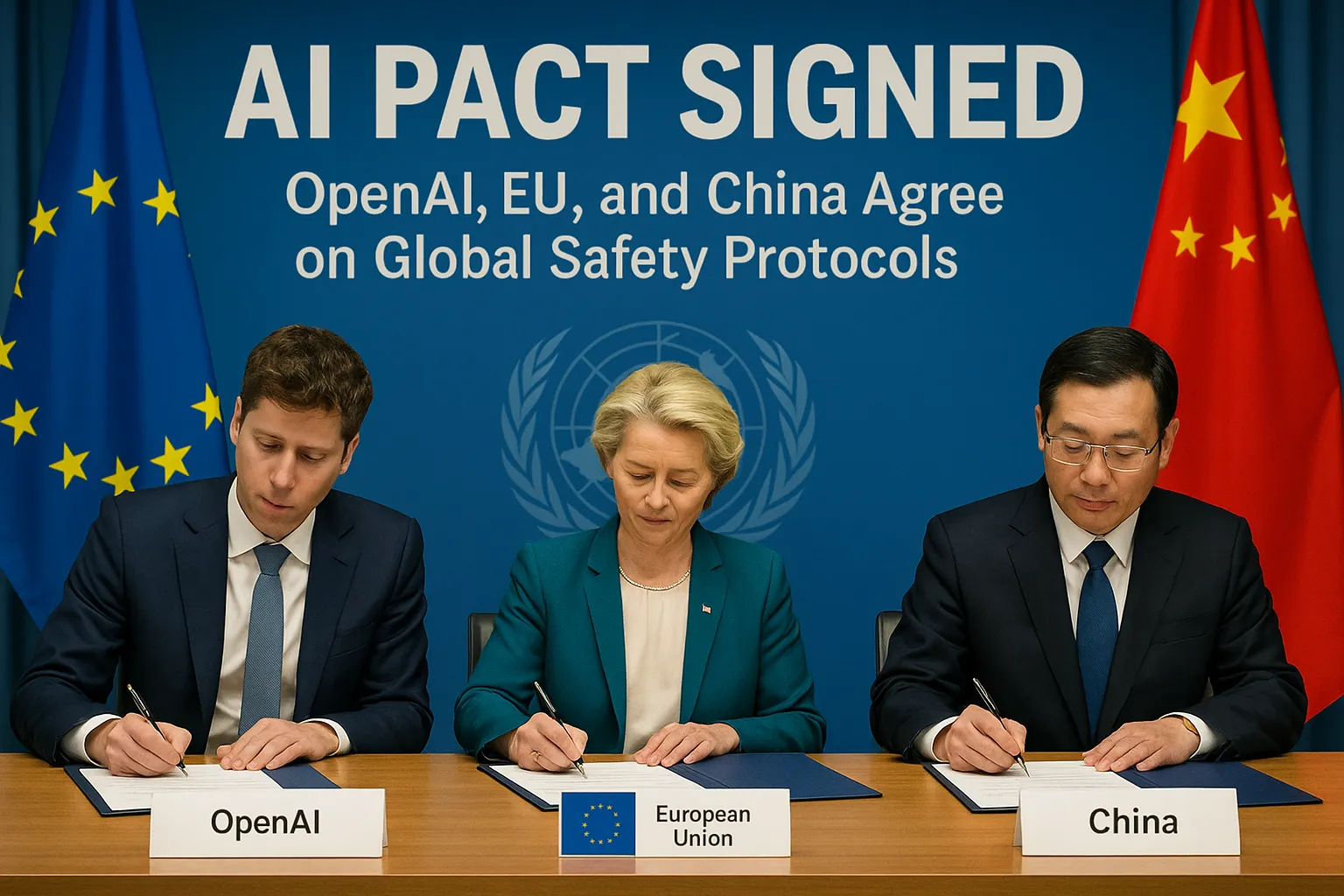AI Pact Signed: OpenAI, EU, and China Agree on Global Safety Protocols
Global AI Agreement Signed Between OpenAI, EU, and China
July 20, 2025 – Geneva: In a groundbreaking move, OpenAI, the European Commission, and China’s National AI Authority have jointly signed the first-ever multilateral artificial intelligence safety accord. The agreement, finalized during the Global Tech Governance Summit in Geneva, sets forth a shared framework for AI development, auditing, and accountability.
The pact outlines ethical guardrails, real-time auditing procedures for large language models, and mandates for transparency in high-risk systems. It marks the first major step toward synchronized global AI standards, following months of negotiation amid rising geopolitical tensions and exponential AI adoption.
Key Provisions of the Pact
- Independent oversight boards with cross-border auditing authority
- Mandatory reporting for autonomous decision-making systems
- Shared red-team protocols for stress-testing high-impact models
- Ban on unregulated military use of general-purpose AI
Expert Reactions
“This pact doesn’t just address today’s risks — it builds infrastructure for global coordination in the decades to come.”
– Dr. Eleanor Wu, AI Ethics Researcher, MIT
OpenAI CEO Sam Altman stated that “trust and cooperation are the only way to responsibly scale these technologies.” EU Commissioner for Digital Affairs praised the agreement as “a blueprint for AI harmonization in the public interest.” Meanwhile, Chinese delegates emphasized their commitment to “mutual safety and shared innovation.”
What Comes Next?
Implementation of the agreement will begin in Q4 2025, with pilot auditing hubs set up in Berlin, Beijing, and San Francisco. Observers from the UN, African Union, and private sector AI labs will participate in an evaluation period scheduled through 2026.
While critics argue enforcement mechanisms remain unclear, the pact is widely seen as a historic first step in aligning global superpowers on AI governance.

